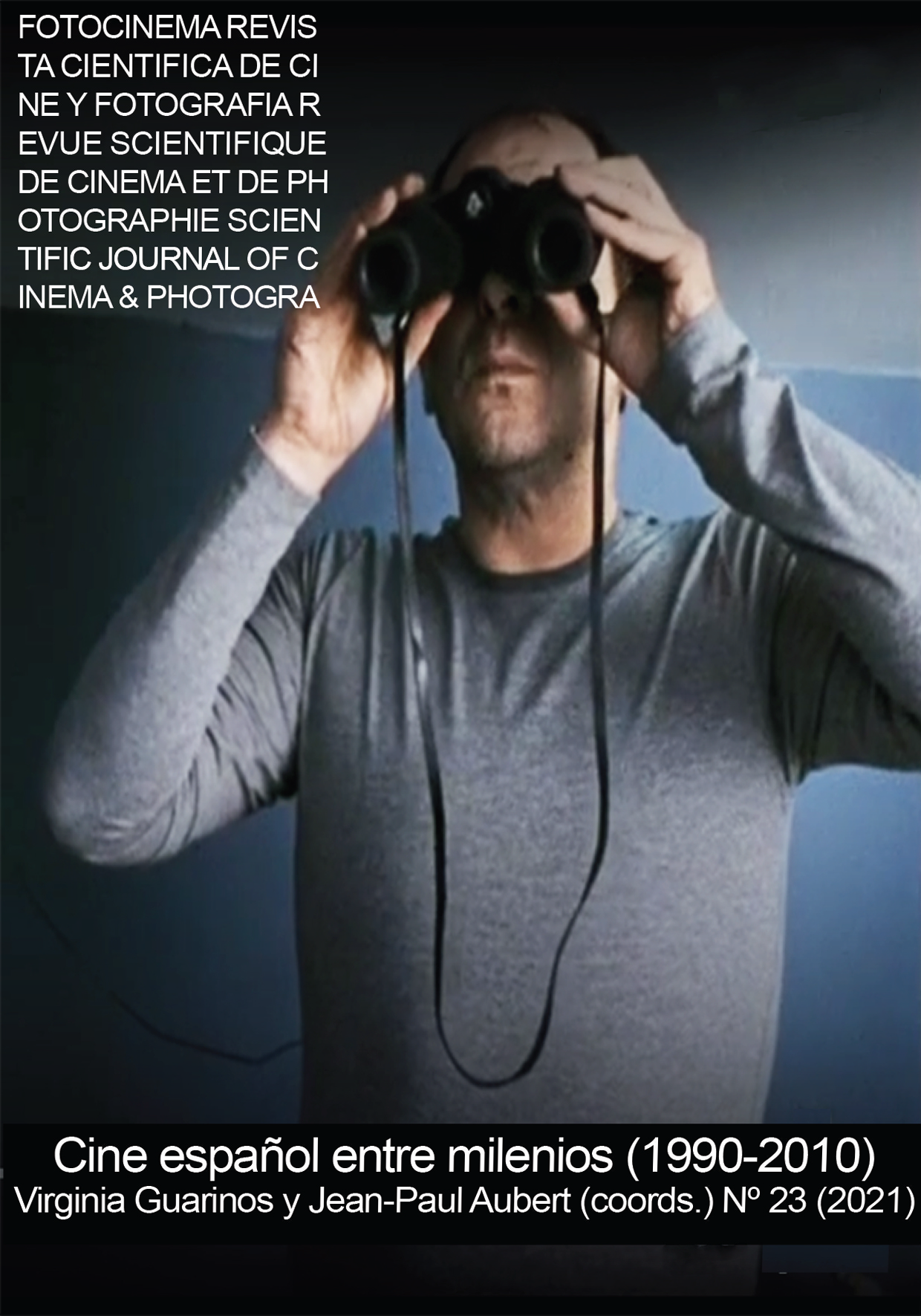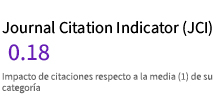Jess Franco’s digital films (1999-2012): recycling and posmodernity
DOI:
https://doi.org/10.24310/Fotocinema.2021.v23i.12403Keywords:
Jess Franco, digital film, posmodernity, post-production, narrativeAbstract
This paper deals with the last period of digital films by director Jess Franco, a figure of international relevance in the world of B-movies, in which he experiments with the fringes of film but nevertheless anticipating current issues of postmodern cinema. From Tender Flesh (1997) to his last film, shot a year before his death, Revenge of the Alligator Ladies (2012), Franco explores the possibilities of digital video recording and post-production to trace a discourse that reflects on his own body of work and literary sources while viscerally renouncing classic cinematographic conventions. The paper is dedicated to comparing the common trends in the story and discourse of this group of twenty films, with the features that characterize the modern and postmodern cinema, such as the fragmentation of stories, the recycling of tropes and icons of popular culture, intertextuality and the close relationship between creators and their audience.
Downloads
Metrics
Publication Facts
Reviewer profiles N/A
Author statements
Indexed in
-
—
- Academic society
- N/A
- Publisher
- Universidad de Málaga
References
Aguilar, C. (2011). Jesús Franco. Madrid: Ediciones Cátedra.
Barthes, R. (1997). Sade, Fourier y Loyola. Madrid: Ediciones Cátedra.
Bourriaud, N. (2004). Post produccio?n: la cultura como escenario, modos en que el arte de reprogramar el mundo contemporáneo. Buenos Aires: Adriana Hidalgo.
Bracco, D. (2020). Torremolinos 73 de Pablo Berger: una mirada posmoderna a la España tardofranquista. Fotocinema. Revista científica De Cine Y fotografía, (20), 55-78.
https://doi.org/10.24310/Fotocinema.2020.v0i20.7591
Chatman, S. B. (2013). Historia y discurso: La estructura narrativa en la novela y en el cine. Barcelona: RBA.
Cerdán, J. (2004). España fin de milenio. Sobre El día de la bestia (Álex de la Iglesia, 1995). En R. Ruzafa. (Ed.) La historia a través del cine: Transición y consolidación democrática en España (pp. 235-256). Bilbao: Universidad del País Vasco, Servicio Editorial.
Costa, J. (1999). Entrevista. En C. Aguilar (Ed.), Cine fantástico y de terror español 1900-1983 (pp. 145-190). San Sebastián: Donostia Kultura, Semana de Cine Fantástico y de Terror.
Foster, H. (2004). Diseño y delito. Madrid: Ediciones Akal.
Franco, J. (2004). Memorias del tío Jess. Madrid: Aguilar.
García Jiménez, J. (2003). Narrativa audiovisual. Madrid: Cátedra.
Gonzalez de Canales Carcereny, J. (2017). El cine de Albert Serra: apropiación y reinterpretación fílmica de los clásicos literarios. Fotocinema. Revista científica De Cine Y fotografía, (14), 83-98.
https://doi.org/10.24310/Fotocinema.2017.v0i14.3573
Heredero, C. F. & Monterde, J. E. (Eds.). (2003). Los nuevos cines en España: Ilusiones y desencantos de los an?os sesenta. Valencia: Generalitat Valenciana; Festival Internacional de Cine de Gijón.
Hutcheon, L. (1985). A Theory of Parody: The Teaching of Twentieth-Century Art Forms. New York / Londres: Methuen.
Lacuesta, I. (2019). Yo soy 'el otro' (y a ti te encontré en la calle). Fotogramas & DVD: La primera revista de cine, (2105), 10-10.
Lázaro-Reboll, A. & Olney, I. (Eds.) (2018). The films of Jess Franco. Detroit: Wayne State University Press.
Lucas, T. (2010). Jess Franco’s Declaration of Principles: How to Read the Early Films, 1959-67. Video Watchdog. The Perfectionist’s Guide to Fantastic Video, 157, 16-49.
Mendik, X. & Mathijs, E. (Eds) (2004). Alternative Europe: Eurotrash and Exploitation Cinema since 1945. Londres: Wallflower Press.
Navarrete, C. J. L. (2009). Historia de un género cinematográfico: la españolada. Madrid: Quiasmo.
Pavlovic, T. (2003). Despotic Bodies and Transgressive Bodies: Spanish Culture from Francisco Franco to Jesús Franco. New York: State University of New York Press.
Rauger, J. F. (2008). Fragments d’une filmographie impossible. Recuperado de http://www.cinematheque.fr/cycle/jess-franco-248.html
Rodriguez, T. A. A. (2020). Intertextualidad y minificcio?n: procedimientos y li?mites. Ogigia. Revista Electro?nica De Estudios Hispa?nicos, 27, 53-74.
Rodríguez Ortega, V. & Romero Santos, R. (2018). (Re)born Again. When Jess Franco Met the Indies. En A. Lázaro-Reboll & I. Olney (Eds.). The films of Jess Franco (pp. 265-289). Detroit: Wayne State University Press.
Sconce, J. (Ed.). (2007). Sleaze Artists: Cinema at the Margins of Taste, Style and Politics. Londres: Duke University Press.
Sontag, S. (1985). Estilos radicales. Barcelona: Muchnik Editores.
Thrower, S. (2015). Murderous passions. the delirious cinema of Jesús Franco. Londres: Strange Attractor.
Tohill, C. & Tombs, P. (1995). Immoral tales: Sex and horror cinema in Europe 1956-1984. Londres: Titan Books.
Downloads
Published
How to Cite
Issue
Section
License
All contents published in Fotocinema Revista científica de cine y fotografía are protected under the Creative Commons Attribution-NonCommercial-ShareAlike 4.0 International (CC BY-NC-SA 4.0) license. All about this license is available in the following link: <http://creativecommons.org/licenses/by-nc-sa/4.0>
Users can copy, use, redistribute, share and exhibit publicly as long as:
- The original source and authorship of the material are cited (Journal, Publisher and URL of the work).
- It is not used for comercial purposes.
- The existence of the license and its especifications are mentioned.
There are two sets of authors’ rights: moral and property rights. Moral rights are perpetual prerogatives, unrenounceable, not-transferable, unalienable, imprescriptible and inembargable. According to authors’ rights legislation, Fotocinema. Revista científica de cine y fotografía recognizes and respects authors moral rights, as well as the ownership of property rights, which will be transferred to University of Malaga in open access. The property rights are referred to the benefits that are gained by the use or the dissemination of works. Fotocinema. Revista científica de cine y fotografía is published in an open access form and it is exclusively licenced by any means for doing or authorising distribution, dissemination, reproduction, , adaptation, translation or arrangement of works.
Authors are responsable for obtaining the necessary permission to use copyrighted images.














13.png)



